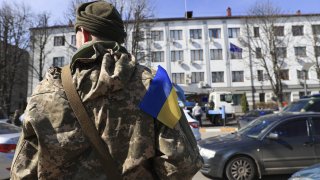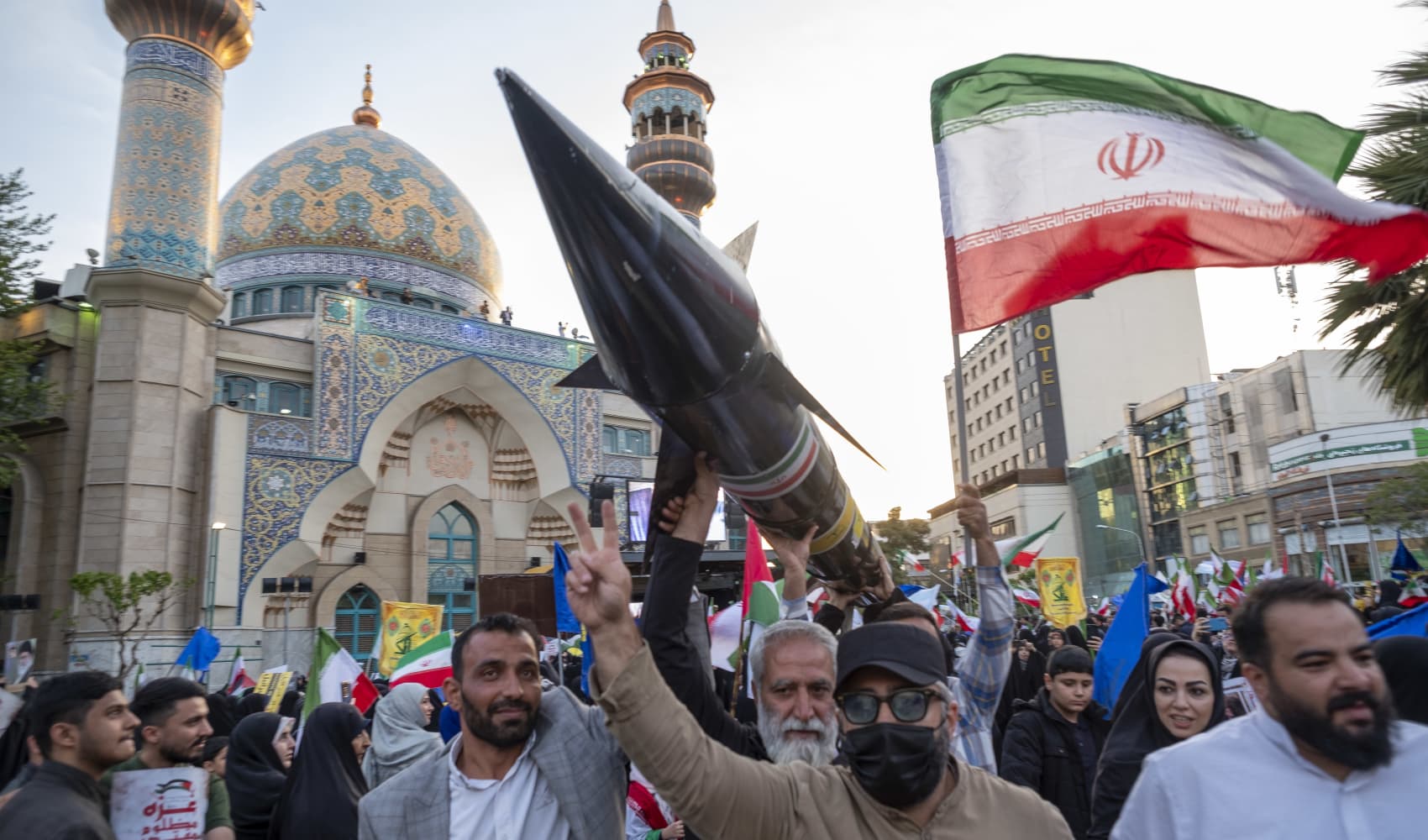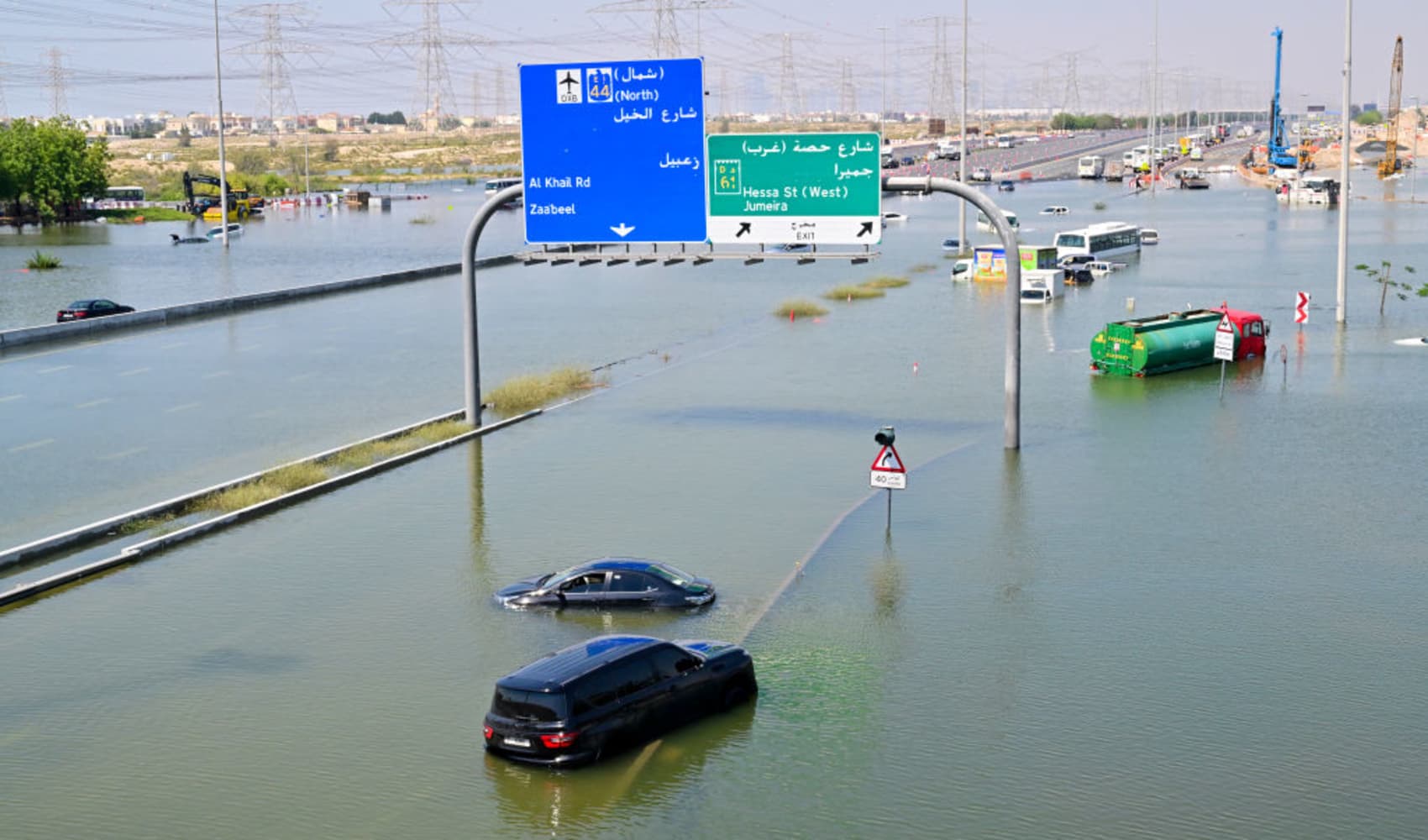
- Russian President Vladimir Putin might resort to weapons of mass destruction, like chemical and tactical nuclear weapons, if he fails to achieve a "conventional forces victory" in eastern Ukraine, says Niall Ferguson, a senior fellow at the Hoover Institution at Stanford University.
- "Those are very serious risks the Biden administration seems to be discounting rather too casually," he told CNBC's "Squawk Box Asia" on Thursday.
- The U.S. strategy seems to be to let the war go on to "bleed Russia dry" and hope for a regime change in Moscow, but Ferguson said this is a "very hazardous" strategy.
Russian President Vladimir Putin might resort to weapons of mass destruction, like chemical and tactical nuclear weapons, if he fails to achieve a "conventional forces victory" in eastern Ukraine, says Niall Ferguson, a senior fellow at the Hoover Institution at Stanford University.
"Those are very serious risks the Biden administration seems to be discounting rather too casually," Ferguson, who was also a history professor at Harvard University, told CNBC's "Squawk Box Asia" on Thursday.
Feeling out of the loop? We'll catch you up on the Chicago news you need to know. Sign up for the weekly Chicago Catch-Up newsletter here.
The U.S. strategy seems to be to let the war go on to "bleed Russia dry" and hope for a regime change in Moscow, but Ferguson said this is a "very hazardous" strategy.
Over the past week, Russian forces have pulled back from areas around Ukrainian capital Kyiv as Moscow shifts its focus to what Sergei Rudskoy, deputy chief of staff of Russia's Armed Forces, called the "complete liberation" of the Donbas region.
The Donbas in eastern Ukraine is the site of two breakaway regions where Ukrainian forces and Moscow-backed separatists have fought since Russia illegally annexed Crimea in 2014.
Money Report
If it becomes clear over the next few weeks that Russian forces are too weary to pull off a decisive victory in the Donbas, Ferguson said Putin might find himself in an "extremely difficult" situation without an obvious offramp.
He noted Putin has already shown himself willing to perpetrate "horrific destruction" with conventional forces like cruise missiles. Russia holds the largest nuclear warhead arsenal in the world, with the U.S. coming in second.
However, Phillips O'Brien of the University of St. Andrews thinks it is "unlikely, if not impossible" for Putin to resort to WMDs.
Using WMDs could lead to even greater support for Ukraine internationally, in terms of weapons and sanctions against Russia, O'Brien said, adding it is also not clear how such weapons would help Russia achieve its political objectives.
"They might kill people in some cities — but how does that help them win the war?" he added.
O'Brien also said there is a "good chance" Moscow will fail to take and hold the south and east of Ukraine.
Ferguson said, however, that Putin's goal is not necessarily the annexation of Ukraine, but instead to ensure that the country's attempt to become a "viable Western-oriented democracy" is a failure.
Western response
Policymakers in Washington and Europe, who have insisted they will not take military action against Russia, will face a "huge dilemma" if Putin does escalate with nuclear or chemical weapons, Ferguson said, which he thinks is "really quite likely."
They are thus faced with two "very awful" choices, he said.
"One, doing nothing more than continuing to supply conventional weapons when a nuclear weapon has been used, or alternatively, taking military action and risking an escalation," he said.
"This is the fundamental problem of strategy," Ferguson added. "If you keep saying that you're not going to take military action, then you, in effect, encourage the other side to escalate in the belief that you will always back away."
On Thursday, G-7 foreign ministers warned against "any threat or use" of chemical, biological or nuclear weapons.
"Any use by Russia of such a weapon would be unacceptable and result in severe consequences," ministers said in a statement.
With heavily armed nuclear powers on the brink of conflict, and with Russia saying it is at war with the West, Ferguson said this is a "much more dangerous" situation than most people appreciate.
"That's why although I think we're not on the bring of World War III, we can't rule that scenario out completely," Ferguson said.






